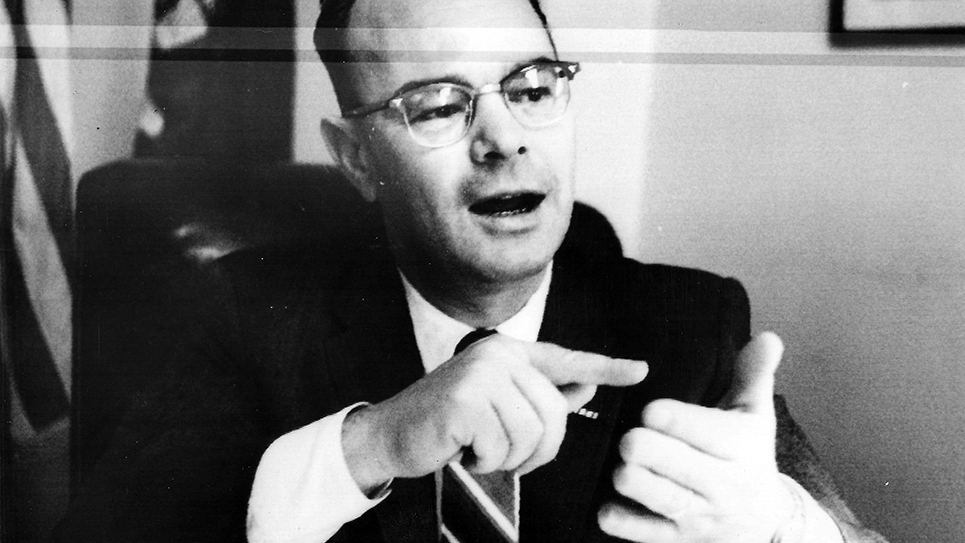The story of Grace Moore is not at all political in nature and hopefully readers of this column will not be sorely disappointed. Miss Moore’s story is, however uniquely and quintessentially American. It is both an interesting story and certainly part of Tennessee’s history. Grace Moore rose from truly humble beginnings and struggled successfully to rise to the top of her profession to achieve stardom and worldwide acclaim.
At the height of her popularity, Grace Moore was a star in every medium of the time: recordings, radio, stage and film. Miss Moore was also a star of the famed Metropolitan Opera.
Born December 5, 1898 in what was then Slabtown, Tennessee, near Del Rio in Cocke County, Mary Willie Grace Moore moved to Knoxville when just two years of age. While still quite young, Grace’s parents moved again, this time to Jellico, where the future diva spent her formative years.
“Willie” Moore first aspired to be, of all things, a Baptist missionary. Her parents were very religious and like many entertainers before and after her, Willie Moore began singing in church. Quite pretty and athletic, Willie captained her basketball team in high school and continued to sing in her church. Unlike most women during her time, Willie managed to go to college, where she studied music and singing and it was not long before she begged her parents to allow her to relocate to Washington, D. C. where she believed she could receive advanced training to help develop her voice.
Initially the Moores were scandalized by their daughter’s request, but soon relented and eventually Grace Moore found herself in New York City. Her first paid job as a singer was at the Black Cat Club in New York. She tried out twice for the Metropolitan Opera and was twice rejected. Still, Miss Moore persisted in her efforts to join the Met, but settled temporarily for a role in a Broadway play oddly titled Hitchy Koo. Despite the appalling name, the musical score was written by the renowned composer Jerome Kern, who was responsible for Show Boat and the legendary song, “Smoke Gets In Your Eyes.”
Grace Moore saved her money and used it to go to Paris where she continued her musical training. Immediately upon her return to the states, Miss Moore was hired to start in one of Irving Berlin’s Broadway musical revues. She appeared in at least two Irving Berlin productions and one of her recordings of a Berlin song became a best-seller. Periodically, between shows, Grace Moore would return to Europe to continue her musical studies and improve her voice. It was while singing in Milan, Italy that one of her cherished dreams came true. Miss Moore was heard by the Director of the Metropolitan Opera, Giulio Gatti-Cazzaza, who promptly signed her to perform at the Met. The little girl from Slabtown, Tennessee made her debut, performing as ‘Mimi’ in La Boheme in 1928.
Grace Moore’s star was certainly on the ascent, but she became known for more than her voice and her incandescent beauty, at least to many of her colleagues. Apparently Miss Moore had quite a passionate nature and was prone to fall in love with her costars. Fellow opera star Rosa Ponselle, a contemporary of Grace Moore, said about her friend, “In newsprint she became an earthy woman who sampled love at every table – – – and rumor had it that the tables were numerous.”
In 1930, Miss Moore made yet another debut, this time in motion pictures. She was signed by Metro-Goldwyn-Mayer, the most prestigious studio in Hollywood. MGM’s slogan was “More Stars Than There Are In The Heavens”, an apt slogan for a studio that counted such stars as Clark Gable, Spencer Tracy, Jean Harlow, and Wallace Beery amongst its contract players. There’s hardly an adult living who cannot recall the roaring lion announcing the start of every MGM movie.
A Lady’s Morals gave Miss Moore the opportunity to portray Jenny Lind, famous as the “Swedish Nightingale”, while Grace Moore was herself known as the “Tennessee Nightingale”. The picture was personally produced by Irving Thalberg, the wunderkind of MGM and husband of actress Norma Shearer. Unfortunately, A Lady’s Morals did not fare especially well at the box office.
Undeterred, MGM tried again, costarring Grace Moore with another Metropolitan Opera star, Lawrence Tibbett in New Moon. The result was much the same, with a disappointing financial return for the movie studio. MGM would remake New Moon with a much more famous singing duo, Nelson Eddy and Jeanette MacDonald, and strike box office gold.
Miss Moore was unhappy and depressed by the failure of her films and evidently began gaining weight. There was no further offer from MGM and Grace Moore returned to the Broadway stage, starring in The DuBarry. This time the Fates were much kinder and the play was a huge success. Grace Moore had also fallen in love. While traveling on an ocean liner, she began a shipboard romance with a Spanish actor, Valentin Parera, and the two were married in a lavish wedding ceremony in Cannes, France in 1931. Theirs was apparently a happy marriage and the two remained together until Miss Moore’s death.
The success of The DuBarry revived Grace Moore’s film career, as her performance and the play’s success had caught the eye of at least one movie producer, Harry Cohen of Columbia Pictures. Cohen was not the sort who would have won any kind of humanitarian award and was coarse and profane, as well as a hard-nosed businessman. Columbia was a considerable comedown from the glamorous MGM, yet the first movie Grace Moore made for the studio was a great success. Not only was One Night of Love a commercial success, it was nominated for five Academy Awards, including a Best Actress nomination for Miss Moore. A little extra sugar was Grace Moore’s recording of the title song became a best-selling record.
Over the next several years, little Willie Moore from Slabtown became a genuine movie star, making another six films for Columbia. The last was Louise, a reprise of her most famous role at the Metropolitan Opera and her own acknowledged favorite role, which was released in 1938. That same year, Miss Moore returned to the stage.
Singing not only in English, but in French, Italian, Spanish and German, Grace Moore proved to be hugely popular in Europe. She made numerous concert tours across the United States and Europe, while frequently performing on the radio.
Like many other artists of the day, Grace Moore threw herself into entertaining the troops during World War II. The French government awarded her the Legion of Honor for her work during the war.
Nobody was prouder of Grace Moore than the people of Tennessee. A sumptuous banquet was thrown in her honor in March of 1936 by the Tennessee Society in Washington, D. C. The hosts for the evening were Tennessee Senator Kenneth McKellar, Secretary of State and Mrs. Cordell Hull, Senator and Mrs. Nathan L. Bachman. The next year, Governor Gordon Browning made Miss Moore an Honorary Tennessee Colonel.
On the evening of January 25, 1947, Grace Moore performed to a packed house of some 4,000 people in Copenhagen, Denmark. She gave a radiant performance that won her a standing ovation at the conclusion.
The next day, along with Gustalf Adolf, the Crown Prince and heir to the Swedish throne, Grace Moore boarded a DC-3 airliner to leave Copenhagen for Sweden. The plane taxied down the runway, rising into the air before stalling and plummeting back to earth and exploding upon impact, killing every passenger on board.
The explosion was so terrible that Miss Moore’s body could only be identified by the jewelry she had worn.
It was a gruesome and especially tragic end to a magnificent career and her golden voice was silenced.
Grace Moore’s body was brought home to Tennessee and laid to rest in Chattanooga, where her parents lived. Some years later, her niece and namesake would be killed in a head-on collision that ended a beautiful and promising young life. The younger Grace Moore was placed beside her famous aunt to sleep.
Valentin Perara, Miss Moore’s husband, outlived her by quite nearly forty years, finally passing at age ninety-one. His own acting career had stalled and he had handled many of his wife’s business affairs and helped to negotiate her contracts. Parera never remarried.
The fiery plane crash that took Grace Moore’s life did not truly still her golden voice for she can still be heard in recordings and her movies are still shown on television. Miss Moore always proudly stated she was from Slabtown, Tennessee. Unconventional, driven and tempestuous, Grace Moore achieved heights of fame dreamed of by many, although accomplished by infinitesimally few.
Yet through it all, Grace Moore never forgot where she came from.







